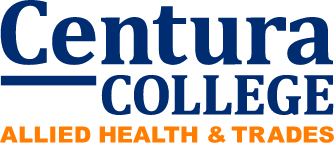
The rapidly aging American population has created a crisis in the health services and insurance industries. There are far more patients than there are doctors, nurses and other medical professionals, so the Federal government has been forced to step in to create incentives to attract more people into these industries. While you need at least a college degree to qualify for most jobs in the industry, office support roles, like medical billing and coding specialists are growing at a rate of over 20% a year, with no end in sight.
What Is a Medical Billing and Coding Specialist?
As the digitization of all information becomes increasingly digitized, medical billing and coding specialists are the custodians of modern medical records. Their job duties include:
- Organization and maintenance of patient records and databases–This allows doctors and nurses to access the complete and correct information about a patient very quickly.
- Translating doctor’s notes to standardized codes–Instead of looking through a doctor’s extensive patient notes or procedural details, medical personnel can look at a very brief summary of the patient’s situation.
- Updating records or a patient’s treatment and procedures–Coders ensure that when a patient has a procedure or receives treatment, the patient’s file is updated. Furthermore, looking through the treatment history gives coders the opportunity to track the quality of service and treatment the patient received.
- Communicating between healthcare workers and billing agencies–One of the biggest problems in medicine right now is getting information from healthcare professionals to the people who handle the money. By using standardized codes, medical coders communicate complex diagnoses and treatment histories to billing agencies, who can then use that information to correctly charge the patient or the insurer.
Medical Billing and Coding Specialist Pay Scale
Because of the high demand for coders, wages for new medical coders grow year after year. The latest reports from the Bureau of Labor Statistics shows that, on average, a medical coder makes $16.42 an hour for an annual salary of $34,160, with variations based on location. The top ten percent of earners brought home make more than $56,000 each year, while the bottom ten percent made slightly more than $22,000.
For a job that does not require a college degree, medical coding is one of the better options available. On average a person with only a high school education will earn around $600 a week, usually in jobs that have little to no job security and few benefits. Medical coders not only make more money on average, but they work in a professional office setting with generous benefits packages, especially if they work for a large health clinic or hospital. Over time, because of advancement opportunities within an office or by moving to a larger location, salaries earned by medical coders dwarf those of other non-college graduates.
Education
While there are some small clinics that will hire coders without any experience, the only way to get a top tier job is through the completion of a certificate training program. These training programs can be completed online or in the classroom, and they are available through hundreds of community colleges and technical schools throughout the country. In the program students are taught the basics of human anatomy and physiology, as well as introductory medical terminology, so they are familiar with the terms that the doctors and nurses use in their notes. Throughout the course, students will learn more specialized information about coding systems, how to handle interactions with health insurance companies and other skills necessary to be successful in the workplace. At the end of the coursework, students are given a certificate exam administered by one of several different accredited organizations, and upon completion, the student is ready to enter the workforce.
Any student can start a medical billing and coding specialist training program, but a strong background in certain subjects will make the course much easier for some students. Interested parties should brush up on introductory biology and health, and may want to take some practice math lessons online. Since the job is done almost entirely on a computer, students familiar with computer navigation and common computer problems will have an edge.
People looking to find a career, and not just a dead end job, may find what they are looking for with medical coding. Training takes less than a year in most cases, and the high demand for workers in the industry means finding a job after completion should not be difficult.
DISCLAIMER – Centura College makes no claim, warranty or guarantee as to actual employability or earning potential to current, past or future students and graduates of any career training program we offer. The Centura College website is published for informational purposes only. Every effort is made to ensure the accuracy of information contained within; however, no warranty of accuracy is made. No contractual rights, either expressed or implied, are created by its content. The printed Centura College catalog remains the official publication of Centura College. The Centura College website links to other websites outside the centuracollege.edu domain. These links are provided as a convenience and do not constitute an endorsement. Centura College exercises no control over, and assumes no responsibility for, information that resides on servers outside the centuracollege.edu domain.

